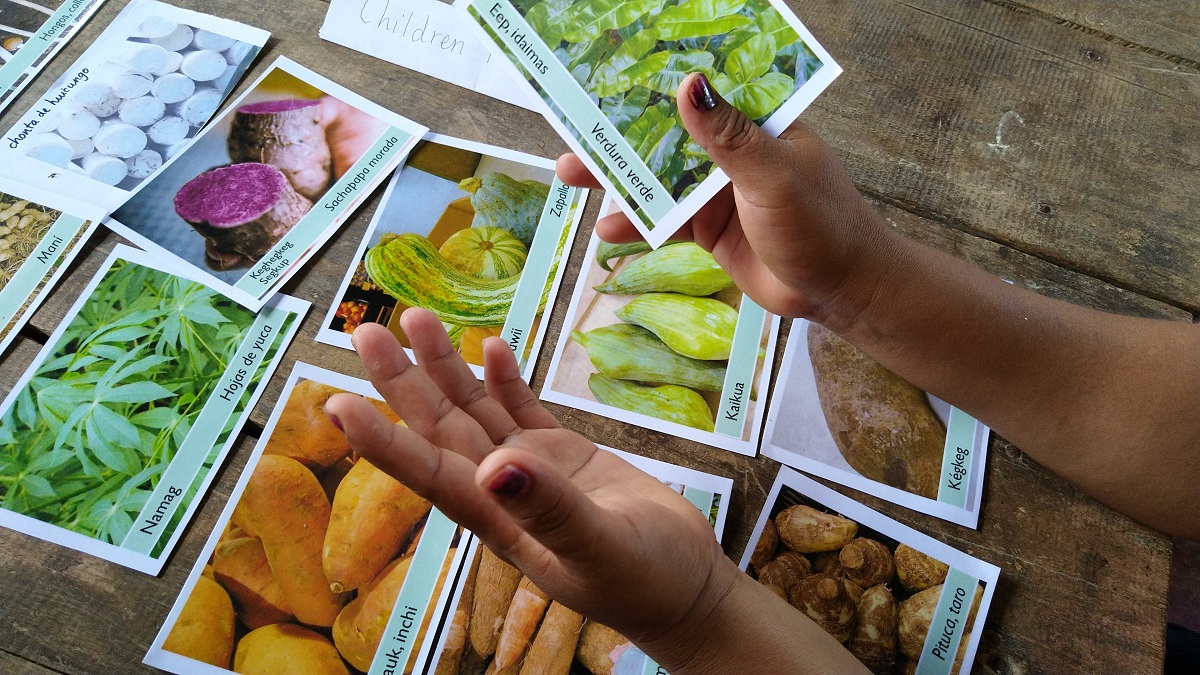
Despite living in one of the most biodiverse areas on the planet, many of the indigenous communities of the Amazonas Region in Peru experience high levels of poverty, food insecurity and malnutrition. Over half of the region’s indigenous children under five years of age suffer from chronic undernutrition and anaemia.
A team of researchers from NRI, led by Dr Pamela Katic, is working on a project entitled ‘Intercultural models to improve nutrition and health of indigenous populations through gender-sensitive agroforestry practices in Peru’. The project’s ‘intercultural’ approach aims to integrate traditional and conventional knowledge, and regards nutrition and health as the result of complex interactions between biological, sociocultural and environmental factors.
In the Amazon, many households practise agroforestry, in which trees are included in agricultural systems. This provides income, strengthens local ecosystems, and supports plant and animal biodiversity. Funded by the UK Medical Research Council and Peruvian Research Council, this project is working with communities involved in coffee- and cocoa-based agroforestry in two areas of Peru’s Amazonas Region, to build evidence on the impacts of agroforestry on human nutrition and health.
Together with local partners, including the Instituto de Investigación Nutricional (Nutrition Research Institute) and Instituto de Investigaciones de la Amazonía Peruana (Research Institute of the Peruvian Amazon), the team is exploring how women’s roles in agroforestry systems affect their nutritional status, time use, care-giving and diets, and how this can guide opportunities to improve maternal and child nutrition.
In 2019, NRI researchers led preliminary and scoping fieldwork activities. Dr Aurélie Bechoff conducted interviews with local authorities to understand institutional linkages between the health, environment, and agriculture sectors. Dr Kate Wellard worked with male and female community members to develop historical timelines and maps, to understand key events, relationships and priorities within the two project areas. Dr Julia de Bruyn led a series of participatory activities using visual prompts, to build lists of local food resources and understand how access to foods varies across the year.
Future components of this project aim to measure the nutritional status and diets of women and young children, during the rainy and dry seasons. The team will evaluate the influence of agroforestry practices, use of wild biodiversity and women’s time use on the nutritional status and diets of women and children. Using the information collected, this project aims to work with communities to co-design, prioritise and evaluate different strategies to improve nutrition and health.
Links: Project abstract (UKRI) | Instituto de Investigación Nutricional | Instituto de Investigaciones de la Amazonía Peruana
Contact: Dr Julia de Bruyn | Dr Kate Wellard | Dr Aurélie Bechoff | Dr Pamela Katic

